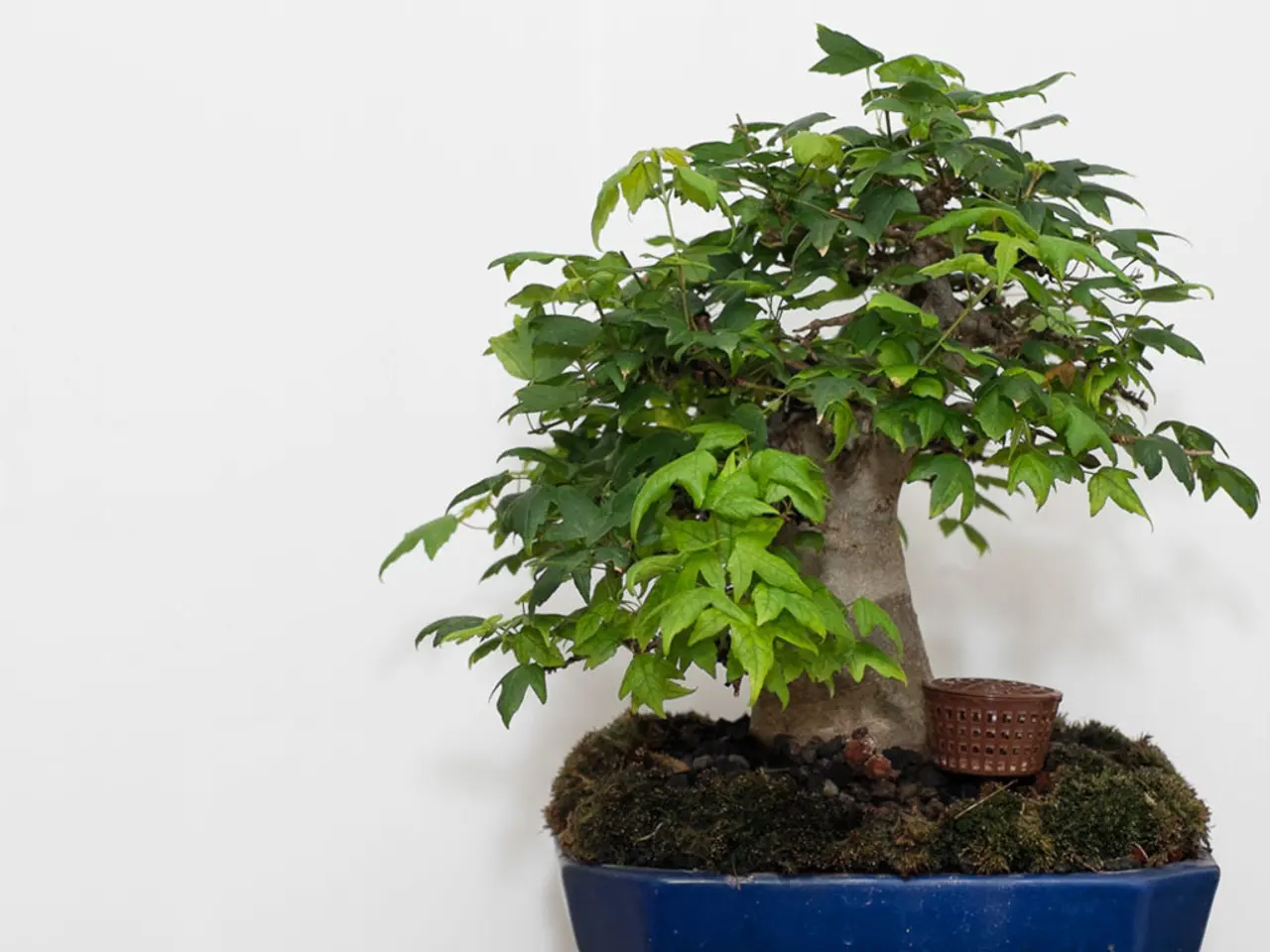Bonsai Tree Seed Choices: Picking Species for Your Germination Adventure
Choosing the Right Bonsai for Your Lifestyle: A Guide for Beginners
For those new to the world of bonsai, it's essential to consider more than just the aesthetic appeal of a tree. Maintenance and care requirements, climate compatibility, and species selection play crucial roles in ensuring a harmonious and rewarding bonsai propagation experience.
When it comes to climate, Chinese Elm, Juniper, Ficus, Jade, and Hornbeam are standout choices for beginners, each with unique characteristics that make them adaptable to different conditions.
Chinese Elm and Juniper are solid outdoor choices for cold or temperate climates. The Chinese Elm, highly recommended for beginners, is tough and forgiving, thriving in moderate moisture and good airflow. It can be grown both indoors and outdoors, but in colder zones, it should be brought indoors in winter to protect it from frost.
Juniper, very popular for beginners, is hardy and has a classic bonsai appearance. It does well outdoors with lots of light and is less suited to indoor growing.
In warmer or indoor environments, Ficus and Jade bonsai excel due to their tolerance of indoor conditions and warmth. The Ficus bonsai are ideal for indoor bonsai care in warmer or subtropical climates, needing steady watering and thriving inside with sufficient light. However, they do not tolerate frost, so they are suitable for indoor cultivation or warm regions. Jade bonsai need less water and plenty of light, making them a good choice for beginners interested in indoor bonsai in warm climates.
Hornbeam is suitable for temperate and cool climates outdoors. It rewards patience and is a good choice for growers interested in structural development and minimalist aesthetics. Requires steady watering during the growing season.
Choosing your bonsai should also consider space, lighting, and your willingness to learn pruning and watering routines. Remember, bonsai seeds are susceptible to pests and diseases, particularly fungal infections and root rot, and proper sanitation, storage, and germination techniques are vital to minimize risks and guarantee healthy seedlings.
Bonsai seeds can take 1-3 months to germinate, with some species requiring up to 6-12 months, demanding patience and dedication. Species selection in bonsai cultivation sets the stage for a harmonious union of art and nature, allowing cultivators to orchestrate a symphony of shape, size, and beauty.
Locally sourced seeds from mature trees can be a valuable resource, but collectors must be cautious to consider compatibility, contamination risks, and potential genetic limitations. Importing bonsai seeds from other countries requires research and compliance with regulations, such as phytosanitary certificates, import permits, and customs declarations, to guarantee the safe and legal introduction of non-native species.
In conclusion, by considering the factors outlined above, beginners can make informed decisions when choosing their first bonsai, setting the stage for a fulfilling and rewarding bonsai journey.
Key tags for reference: beginner-friendly, adaptable, indoor/outdoor, climate zones, easy care.
In the world of bonsai, the Chinese Elm and Juniper are adaptable options for gardeners interested in home-and-garden or home-and-gardening pursuits, as they are hardy and well-suited to different climate zones, including cold and temperate environments. On the other hand, Ficus and Jade are ideal choices for indoor bonsai enthusiasts, thriving in warmer conditions and offering an easy-care lifestyle to beginners.




